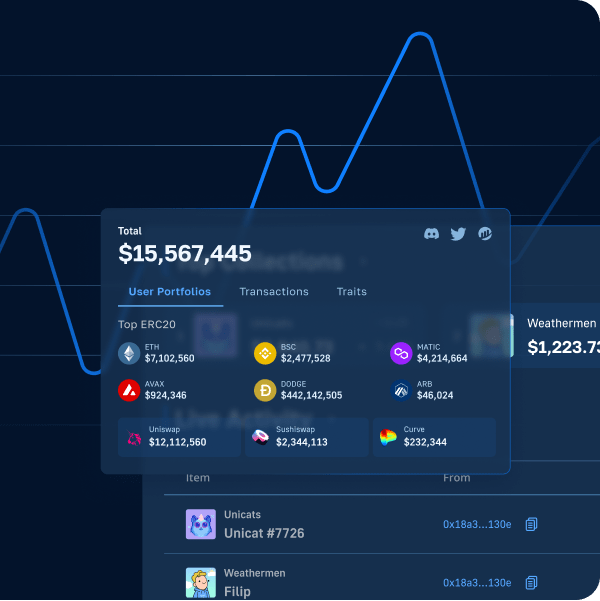Are you looking for the best Alchemy API alternatives? If so, then you’re exactly where you want to be! In today’s guide, we’ll compare Moralis, Alchemy, and QuickNode to see how these three API providers stack up in terms of accessibility, speed, and security. For a quick breakdown, check out the table below:
Moralis vs. Alchemy vs. QuickNode
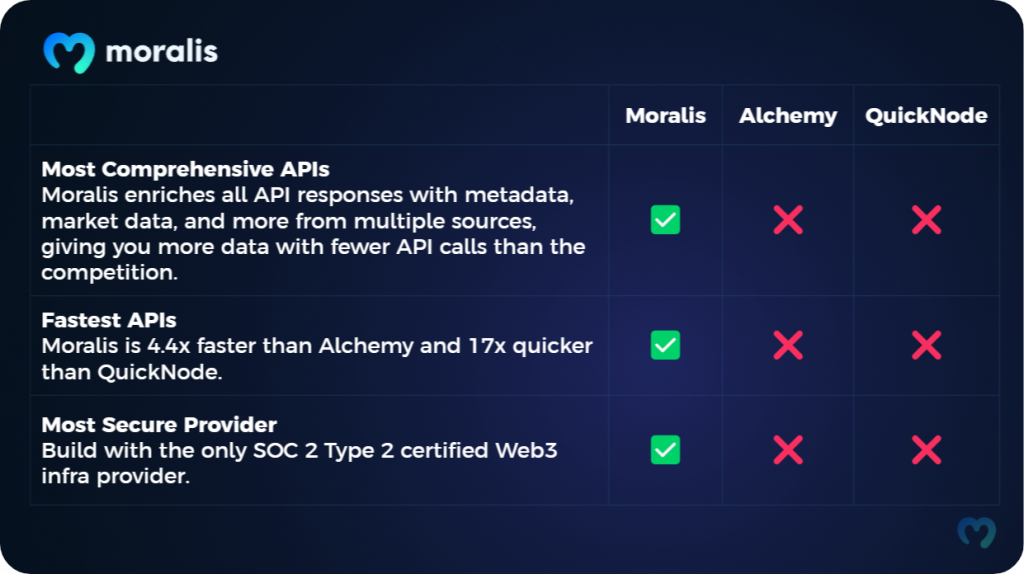
As you can see, Moralis clearly stands out as the industry leader when it comes to comprehensiveness, speed, and security. If you want a more in-depth breakdown of the table, then continue reading as we dive further into the details.
Also, did you know you can access Moralis’ APIs for free? So, if you immediately want to start leveraging the industry’s leading API provider, take this opportunity to sign up with Moralis free of charge!
Leading Web3 APIs?
Overview – Alchemy API Alternatives
Alchemy is a prominent API provider in the crypto space, giving developers several critical tools for building decentralized applications (dapps). Some examples include nodes, SDKs, and APIs. However, while Alchemy is a popular choice for many developers, it is likely not the optimal option for you, as it leaves a lot to be desired. So, what should you go for instead?
Well, in today’s guide, we’ll look at the best Alchemy API alternatives to give you a more nuanced view of the market. More specifically, we’ll compare Moralis, Alchemy, and QuickNode to see how they stack up against each other!
So, if you’d like to explore the industry’s leading Alchemy API alternatives, then this read is for you. Let’s dive straight into it!
Alchemy API Alternatives – What is Alchemy?
Alchemy launched in 2020, and it’s one of the blockchain industry’s largest Web3 API providers. With prominent tools like SDKs, blockchain nodes, and Web3 APIs, the platform provides many of the resources developers need to build decentralized applications (dapps)!
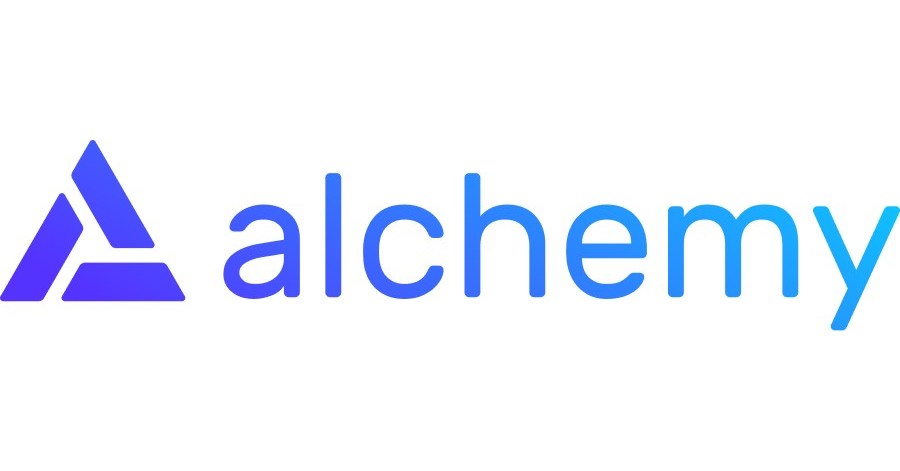
Alchemy’s suite of Web3 APIs consists of multiple interfaces, including the Transfer API, Transact API, NFT API, etc. These tools make it easier for developers to fetch all sorts of on-chain information, such as transfer data, NFT metadata, and token balances. As such, Alchemy empowers developers to build everything from NFT marketplaces to DeFi dapps.
Furthermore, Alchemy’s APIs support multiple networks, including Ethereum, Optimism, Polygon, and Base. Consequently, when building with Alchemy, it becomes possible to create dapps that span some of the industry’s biggest blockchains.
However, while Alchemy stands out as one of the largest Web3 API providers, it’s far from the best, leaving a lot to be desired. As such, in the following sections, we’ll introduce you to Moralis – the premier option among the best Alchemy API alternatives!
Exploring Moralis – The Industry’s Premier Web3 API Provider
Moralis stands at the forefront of the Web3 API sector, powering blockchain and crypto projects for millions of end users worldwide. With our top-tier selection of APIs and nodes, we empower developers to build blockchain projects faster and more efficiently!

Our suite of premier development tools includes multiple use case-specific Web3 APIs. With these interfaces, you can seamlessly fetch and integrate on-chain data into your projects with only a few lines of code. As such, when using Moralis, you can seamlessly build everything from DeFi dapps to wallets without breaking a sweat!
So, why should you choose Moralis over the competition when building dapps?
- Enriched API Responses: At Moralis, we enrich all API responses with metadata, market data, address labels, and more. This allows us to provide the industry’s most comprehensive APIs, designed to minimize the number of calls required to build dapps.
- Accessible and Cross-Chain Compatible: Request and response structures are universal across all Moralis APIs, allowing us to facilitate the most accessible developer experience in Web3. Furthermore, all our APIs are cross-chain compatible, supporting the most prominent blockchains, including Ethereum, Polygon, Solana, BNB Smart Chain (BSC), and many others.
- Enterprise-Grade Data Security: Safeguard your users’ data with Moralis, the only SOC 2 Type 2 certified Web3 infra provider.
- Trusted By Industry Leaders: Hundreds of thousands of developers and leading enterprise customers – including MetaMask, Delta, Blockchain.com, etc. – already use and trust Moralis.
Also, did you know you can access all our premier Web3 APIs for free? So, if you haven’t already, make sure to sign up with Moralis straight away!
Moralis’ Web3 API Suite
In Moralis’ suite of development tools, you’ll find more than ten top-tier APIs. Unfortunately, we won’t be able to cover them all in this guide. As such, we’ll instead focus on and introduce three of our most popular APIs!
- Wallet API: The Wallet API supports over 500 million addresses across all major chains, making it the perfect solution for anyone looking to integrate wallet functionality into their dapps. With single endpoints, you can use this API to effortlessly fetch the balances, transaction history, net worth, profitability, etc., of any wallet.
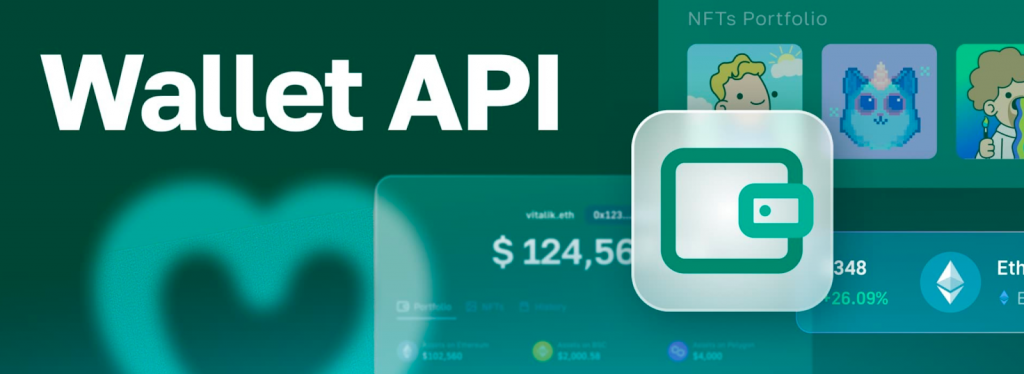
- NFT API: Moralis’ NFT API is the ultimate tool for anyone looking to build NFT-based projects. It supports everything from well-established projects like Pudgy Penguins to tokens that dropped just seconds ago. With single API calls, you can use this premier tool to fetch NFT balances, metadata, prices, and more.
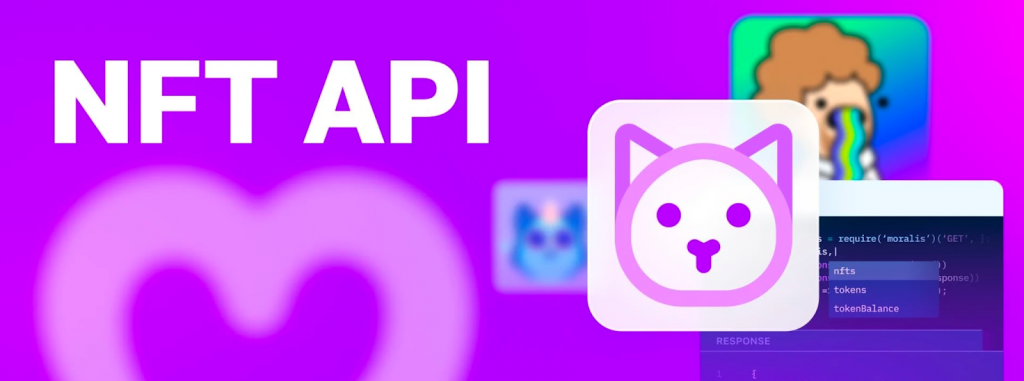
- Streams API: The Streams API is the perfect tool for anyone looking to integrate real-time Web3 alerts into their projects. With a few lines of code, you can seamlessly set up your own streams to get updates sent directly to the backend of your projects via Web3 webhooks. Consequently, with the Streams API, you can keep your users engaged by feeding them real-time alerts about token transfers, NFT airdrops, and other important events.
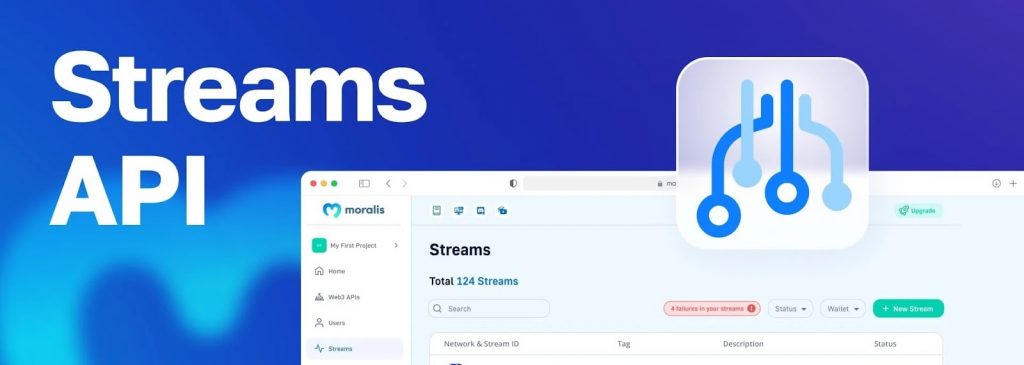
If you’d like to explore all our premier development tools, please check out the official Web3 API page, where you’ll find the remaining interfaces!
Comparing Alchemy API Alternatives: Moralis vs. Alchemy vs. QuickNode
Let’s now dive deeper into why Moralis stands out as the #1 option among the best Alchemy API alternatives. To do so, we’ll compare Moralis, Alchemy, and QuickNode in terms of accessibility, speed, and security to see how these API providers stack up. We have summarized the results down below:
Moralis vs. Alchemy vs. QuickNode

While the table above highlights the benefits of Moralis, you might still need convincing. Therefore, let’s break it down further!
Most Comprehensive APIs
To compare the providers in terms of accessibility and comprehensiveness, we used the APIs of Moralis, Alchemy, and QuickNode to build a portfolio view of Vitalik Buterin’s ERC-20 tokens. This allowed us to methodologically compare each provider’s respective APIs to see how they stack up when fetching the same on-chain resources. Check out the results of our test here:
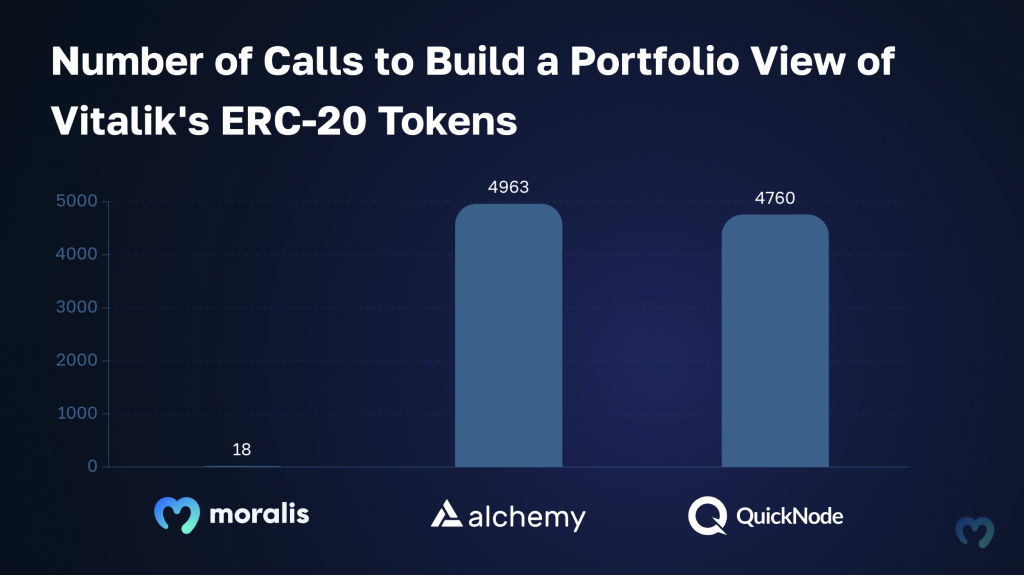
The chart above clearly demonstrates that Moralis distinguishes itself as the leading provider by requiring the fewest calls to obtain the portfolio data. With Moralis, you only need 18 calls. Meanwhile, the same task demanded 4963 calls with Alchemy and 4760 calls with QuickNode.
But why are the results so drastically different?
Well, the secret is the comprehensiveness of Moralis’ API responses!
With Moralis’ Token API, you get a wallet’s ERC-20 balances – along with prices and metadata for each token – in a single response. In comparison, when using either Alchemy or QuickNode, you must first fetch the wallet’s token balances. From there, you need to call an endpoint for each token to fetch the metadata. Lastly, you also need to leverage a third-party provider like CoinGecko to query the price data.
For a more detailed breakdown of this test, check out our article comparing the industry’s leading Web3 API providers.
Fastest APIs
To compare the providers in terms of speed, we’ll use their respective APIs to fetch all ERC-20 tokens from Vitalik’s wallet. Doing so gave us the following results:
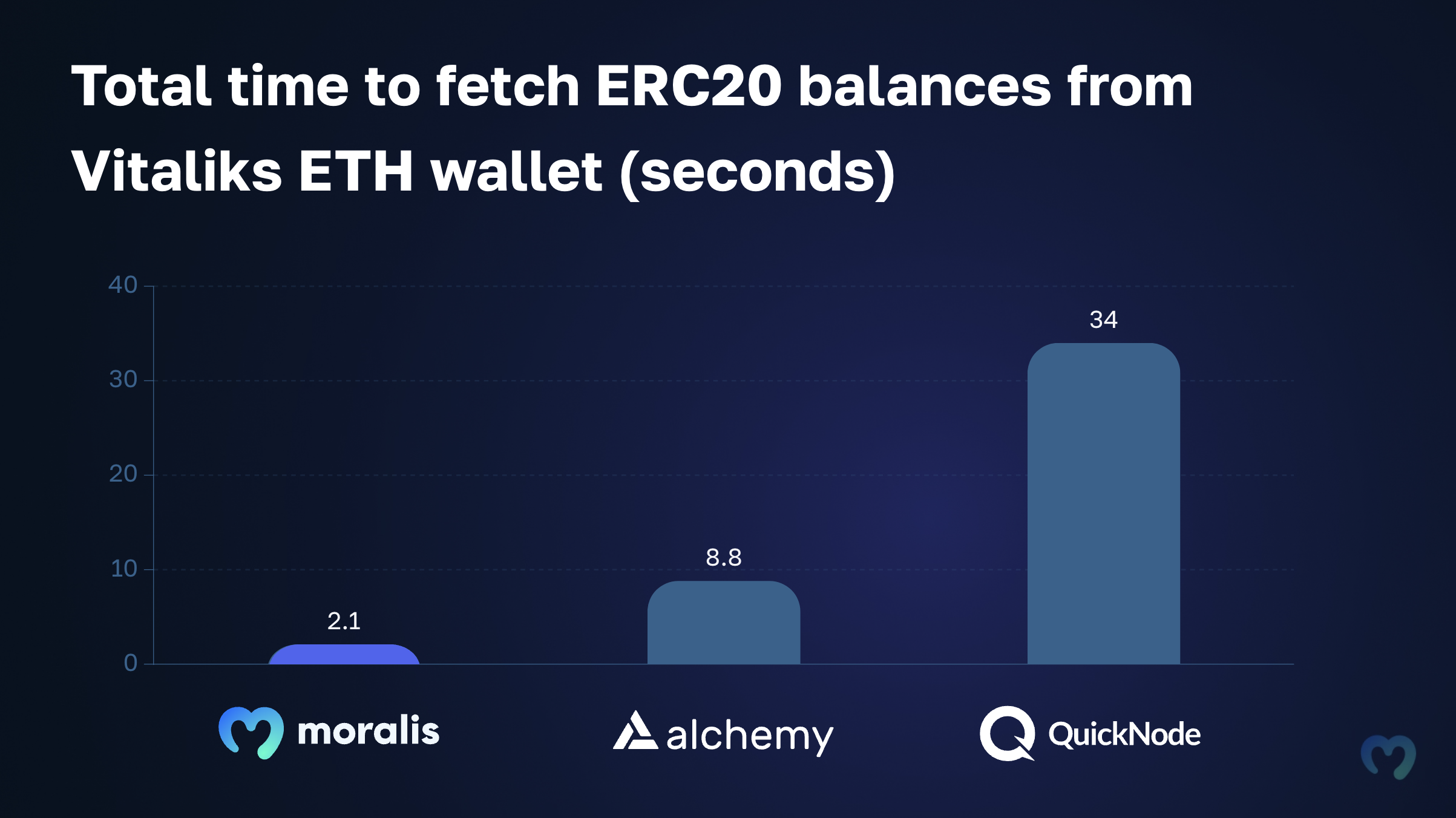
As you can see, Moralis also stands out as the fastest API provider. In fact, when using Moralis, we managed to fetch the tokens about 4.4 times faster than with Alchemy and a whopping 17x faster than with QuickNode.
So, if you’re looking for high-performing APIs, go for Moralis!
Most Secure Provider
In terms of security, Moralis is the first and only Web3 infra provider that’s SOC 2 Type 2 certified. SOC 2 Type 2 is the gold standard for enterprise data security, highlighting Moralis’ dedication to keeping your data secure.

Want to learn more about enterprise-grade data security? Check out our article on SOC 2 in Web3!
What Can You Build with Moralis?
With Moralis’ dynamic suite of Web3 APIs, you can build any platform you can imagine. However, to give you some inspiration, here are three examples of prominent use cases:
- Token Analytics: Token analytics tools are platforms that give users deep insight into the performance of particular assets. Given the volatility of the crypto market, these tools have become essential for traders to make informed investment decisions.
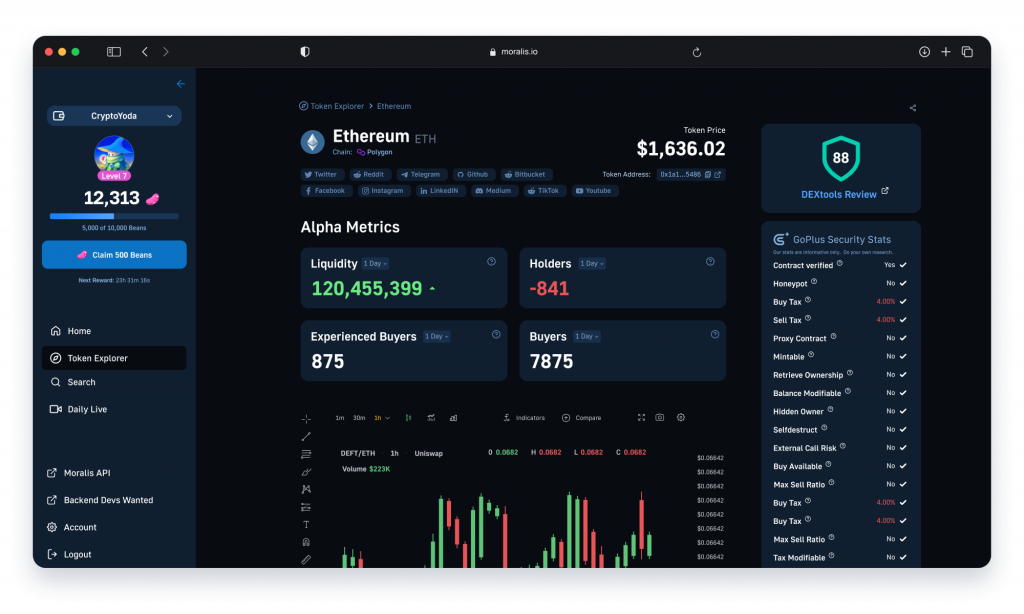
- Portfolio Trackers: Portfolio trackers are websites and applications that allow users to track the performance of their digital holdings, including stocks, cryptocurrencies, and NFTs. These platforms typically accumulate data from multiple chains, giving users a complete overview of their assets.
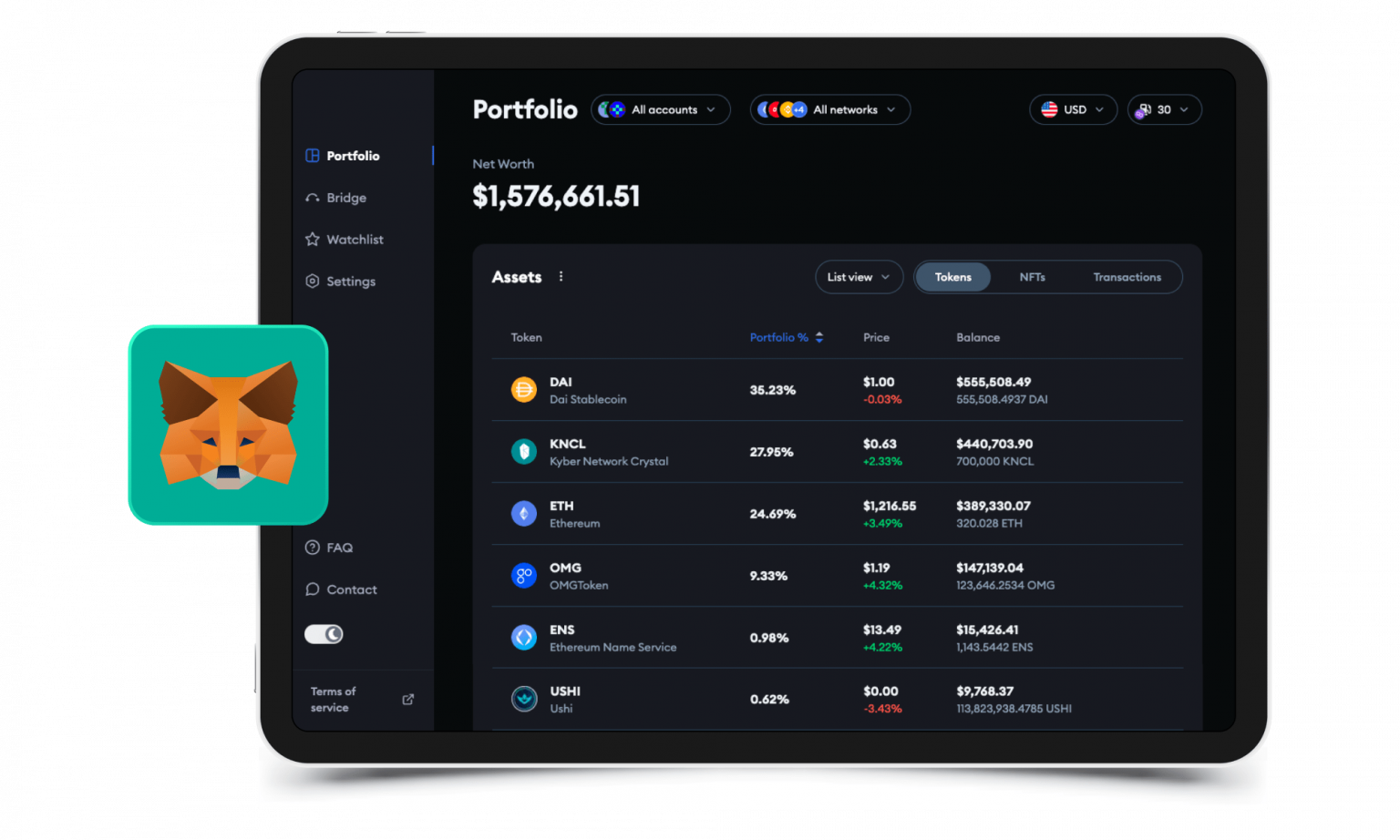
- Cryptocurrency Wallets: Cryptocurrency wallets are applications and websites that allow users to store their digital assets, typically in a non-custodial manner. The best wallets also provide functionality for buying and selling tokens, giving users a one-stop shop to fully manage their cryptocurrencies.
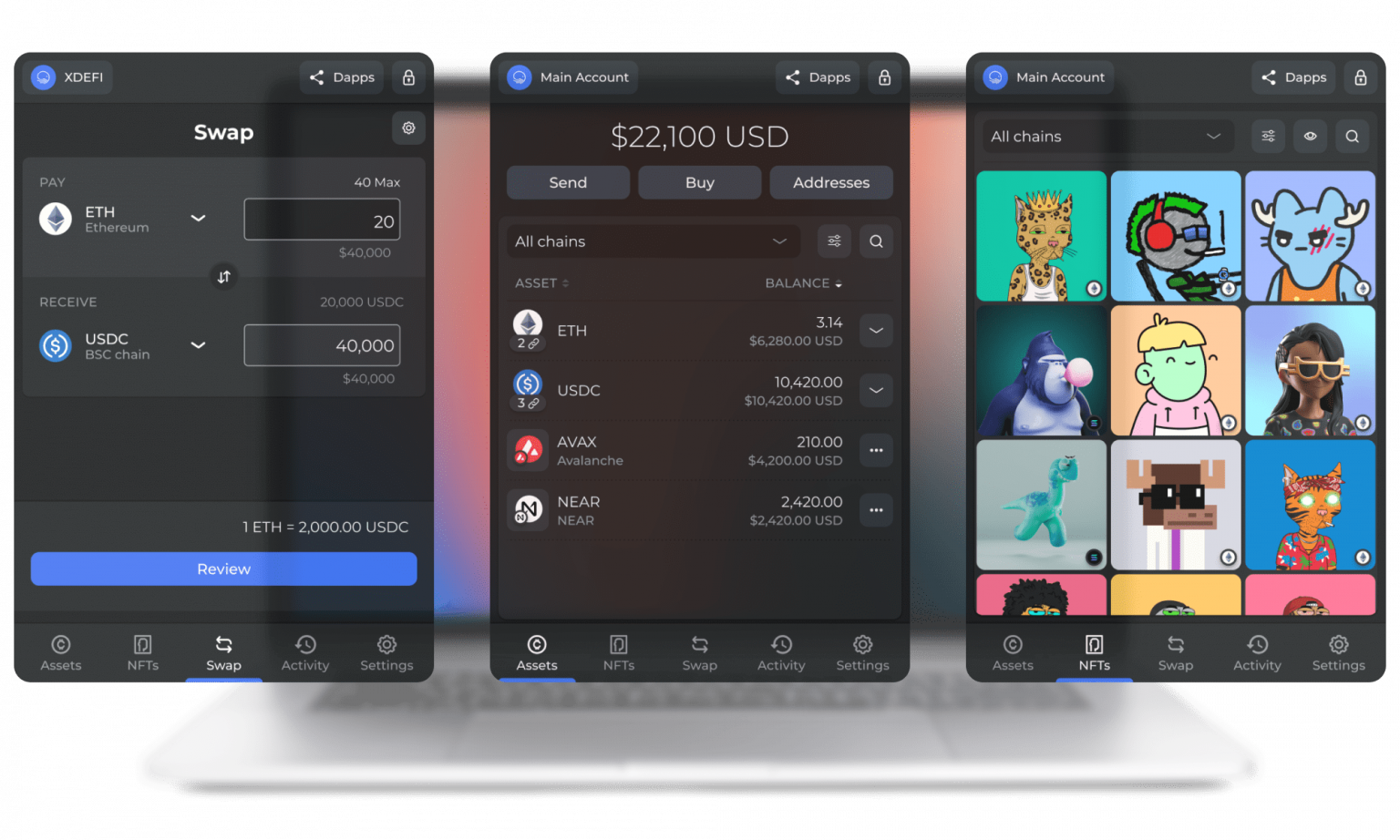
Moralis Success Stories
There are many examples of businesses successfully leveraging Moralis to save time, cut costs, and boost the performance of their platforms. As such, let’s explore three prominent examples down below:
- Delta: Delta is an industry-leading portfolio tracker that makes digital asset management a breeze. With the help of Moralis, Delta managed to save 2,500 engineering hours when integrating NFTs into their platform:
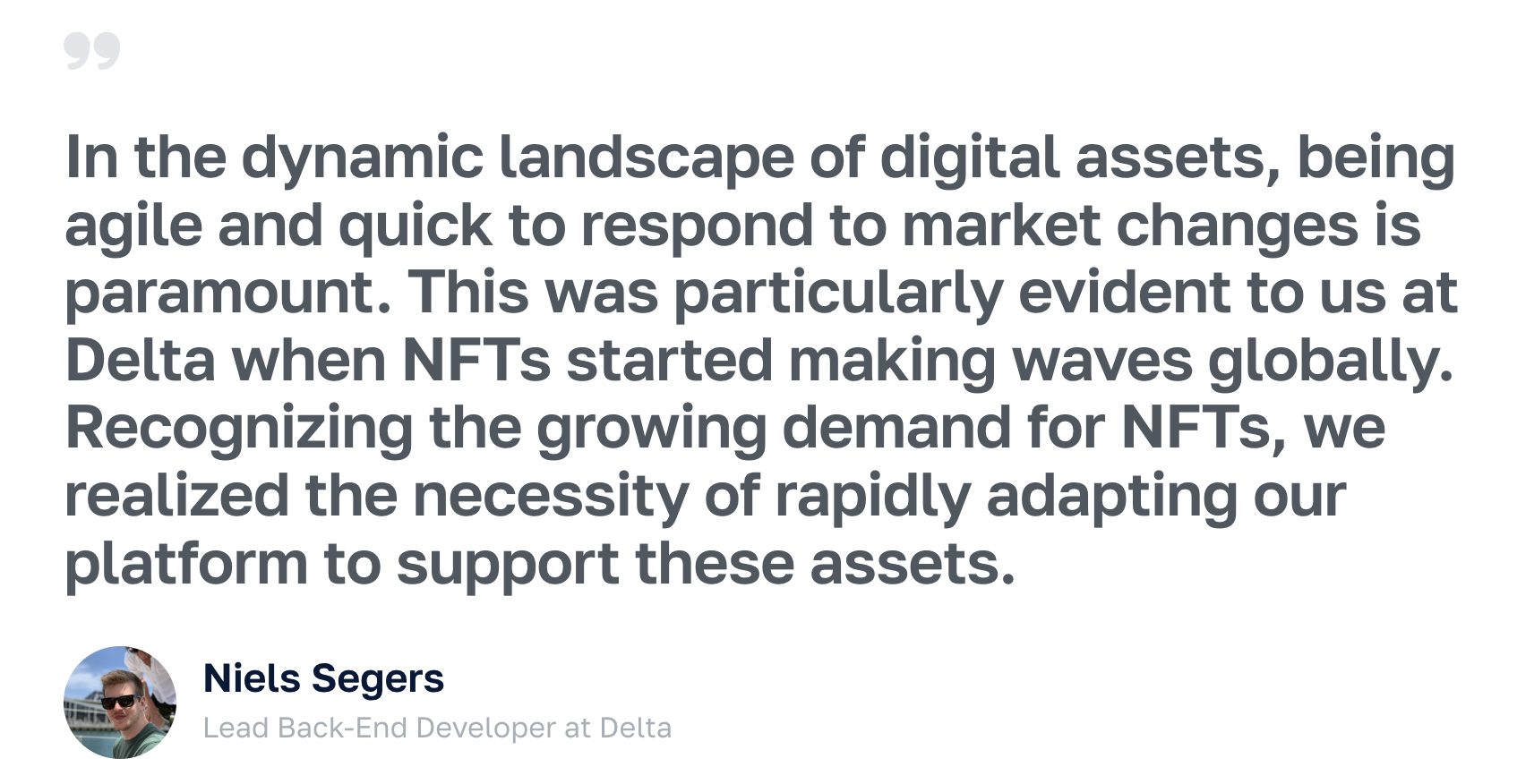
- Beoble: The Web3 messaging infrastructure beoble provides token-gated chat rooms for crypto enthusiasts around the globe. With Moralis’ Streams API, beoble is able to seamlessly monitor 1,000,000+ addresses in real-time, ensuring that users have proper access to different chat rooms:
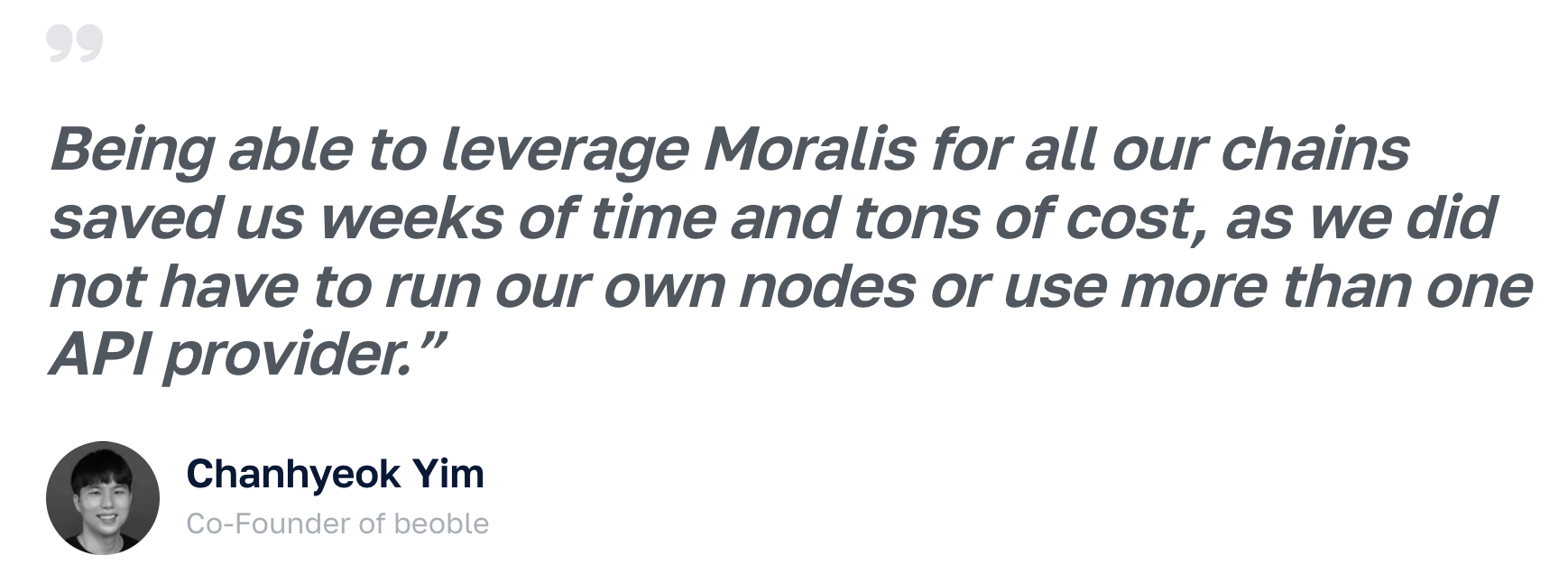
- MetaMask: MetaMask is the industry’s #1 cryptocurrency wallet, serving a large base of millions and millions of end users. MetaMask leverages Moralis for their NFT data needs, giving them more time to focus on building a compelling user experience:
Summary: Exploring the Best Alchemy API Alternatives
Alchemy launched in 2020, and it is a popular Web3 API provider. In Alchemy’s toolkit, you’ll find several tools crucial for building dapps, including SDKs, nodes, and Web3 APIs. However, while Alchemy stands out as one of the most established platforms, it might not be the best option for your development needs as it leaves much to be desired. Consequently, this is why we took this article to explore the top Alchemy API alternatives!
When exploring the top Alchemy API alternatives, we compared three industry-leading providers – Moralis, Alchemy, and QuickNode – to see how they stack up. In doing so, we learned that Moralis stands out as the premier option in terms of accessibility, speed, and security.
So, if you’d like to start building dapps faster, more efficiently, and with enterprise-grade security, make sure to opt for Moralis!

If you enjoyed this article on Alchemy API alternatives, consider checking out more premier content on our blog. For instance, explore the best QuickNode alternatives or learn how to get the net worth of any ERC20 wallet.
Also, don’t forget to sign up with Moralis. You can set up an account without paying a dime, and you’ll gain instant access to our Web3 API suite so you can start building dapps faster and more efficiently!
